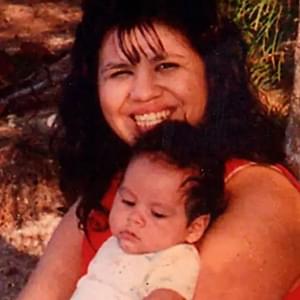
Michael Morton (pictured), who was released after 25 years in prison for a crime he did not commit, and Barry Scheck, co-director of the Innocence Project, called for reforms in Texas’s clemency process. In a recent op-ed in the Houston Chronicle, Morton and Scheck highlighted the case of Cameron Willingham, who was executed in 2004 despite serious doubts about his guilt. According to the authors, it is now understood that investigators who believed that Willingham committed arson were mistaken. They also noted that a recent investigation uncovered that a recantation made by a witness who initially claimed that Willingham confessed to the crime was never made available to Willingham’s lawyers or placed in the court file. Morton and Scheck wrote, “The clemency process that failed to discover Willingham’s innocence in 2004 remains essentially unchanged. A recent study by a committee of the American Bar Association found that the Board of Pardons and Paroles’ consideration of capital cases is woefully inadequate - Texas does not meet any of the eleven minimum guidelines for an adequate process.” They concluded, “No one can endorse a system that allows the execution of an innocent person. And we need to do everything in our power to make sure that the Board of Pardons and Paroles, the last stop in our criminal justice system, has the resources and the procedures necessary to do its job.” Read full text of the op-ed below.
Morton, Scheck: Changes are long overdue for Texas’ clemency process; Willingham case highlights need for system reform
Few people can comprehend the pain felt by the family of Cameron Todd Willingham, whose survivors recently stood with us at the Capitol to ask the state to investigate his wrongful execution.
On Dec. 23, 1991, a fire decimated Willingham’s Corsicana home, killing his 3 daughters.
This tragedy was compounded when Willingham was mistakenly blamed for the fire and convicted of arson murder of his own children.
It is now uniformly understood that the fire investigators who believed that Willingham committed arson were flat wrong.
The Texas Forensic Science Commission has unanimously recognized serious problems with every aspect of the investigators’ assertions in the case, and multiple renowned arson experts have concluded that there was no evidence of foul play.
A recent investigation by the Innocence Project, however, has uncovered troubling new evidence that there may have been foul play at and after Willingham’s trial. The jailhouse informant, Johnny Webb, who claimed that Willingham had confessed, recanted his testimony in a written motion that he attempted to file with the court in 2000 - 4 years before Willingham’s execution.
Although a notation on the motion indicates that it was presented to John Jackson, the lead Willingham prosecutor who had since become a judge, this crucial evidence was never provided to Willingham’s lawyers or even placed in the court file. This recantation never saw the light of day until years after Willingham was executed.
Also, while both Jackson and Webb told the jury that Webb could expect nothing in return for his testimony, newly discovered documents indicate that extraordinary efforts were made to assist Webb in reducing his sentence by 10 years and in dealing with Webb’s day-to-day complaints about prison conditions. Importantly, it appears that neither the courts nor Gov. Rick Perry knew of Webb’s recantation or the assistance he received when they denied Willingham’s last-minute pleas for a stay of execution.
The state of Texas has acted admirably in the creation of the Forensic Science Commission, which has critiqued the fire science in the case; and the State Fire Marshal’s Office has, in conjunction with the Innocence Project of Texas, implemented a review of past arson cases where convictions may have been based on similarly unreliable evidence. Improvements also have been made in the judicial system with the passage of the Michael Morton Act, new requirements for DNA testing in death penalty prosecutions and the creation of a new procedure to consider scientific evidence that contradicts that which led to a conviction.
But the clemency process that failed to discover Willingham’s innocence in 2004 remains essentially unchanged. A recent study by a committee of the American Bar Association found that the Board of Pardons and Paroles’ consideration of capital cases is woefully inadequate - Texas does not meet any of the eleven minimum guidelines for an adequate process. This is a gaping hole in the safety net against wrongful execution.
Although reasonable people can debate the effectiveness of the death penalty or whether it is morally appropriate, no one can endorse a system that allows the execution of an innocent person. And we need to do everything in our power to make sure that the Board of Pardons and Paroles, the last stop in our criminal justice system, has the resources and the procedures necessary to do its job.
And reform of the board should extend beyond capital cases to parole procedures in felony cases, generally.
In a panel discussion the day after our press conference, Vikrant Reddy, coordinator of the Right on Crime campaign for the Center on Effective Justice, explained that as a matter of first principles our criminal justice agencies must adhere to the values of liberty and transparency. We agree and call for a ground-up assessment of board procedures through interim legislative hearings to ensure that these core values are honored in all cases.
Legislative hearings and a public investigation into the Willingham matter, through which we can acknowledge the mistakes that were made, will allow us to learn from these errors and establish meaningful reforms.
We recognize that Gov. Perry and the Board of Pardons and Paroles were not adequately informed of many critical facts in the Willingham case and would never intentionally allow the execution of an innocent man. We are now at a point where leadership in calling for an examination of the Texas clemency process will result in real reform.
There are only 2 mistakes one can make on the road to truth: not going all the way, and not starting. Let’s go all the way to ensure that Texas never again executes an innocent person.
Morton, who was wrongly convicted of murdering his wife, served 25 years in prison before he was exonerated by DNA evidence. Scheck is co-director of the Innocence Project, a litigation and public policy organization affiliated with Cardozo School of Law that is dedicated to exonerating wrongly convicted people through DNA evidence and reforming the criminal justice system.
(M. Morton and B. Scheck, “Changes are long overdue for Texas’ clemency process; Willingham case highlights need for system reform,” Houston Chronicle, October 17, 2013). See Innocence. Read Editorials about the death penalty.




